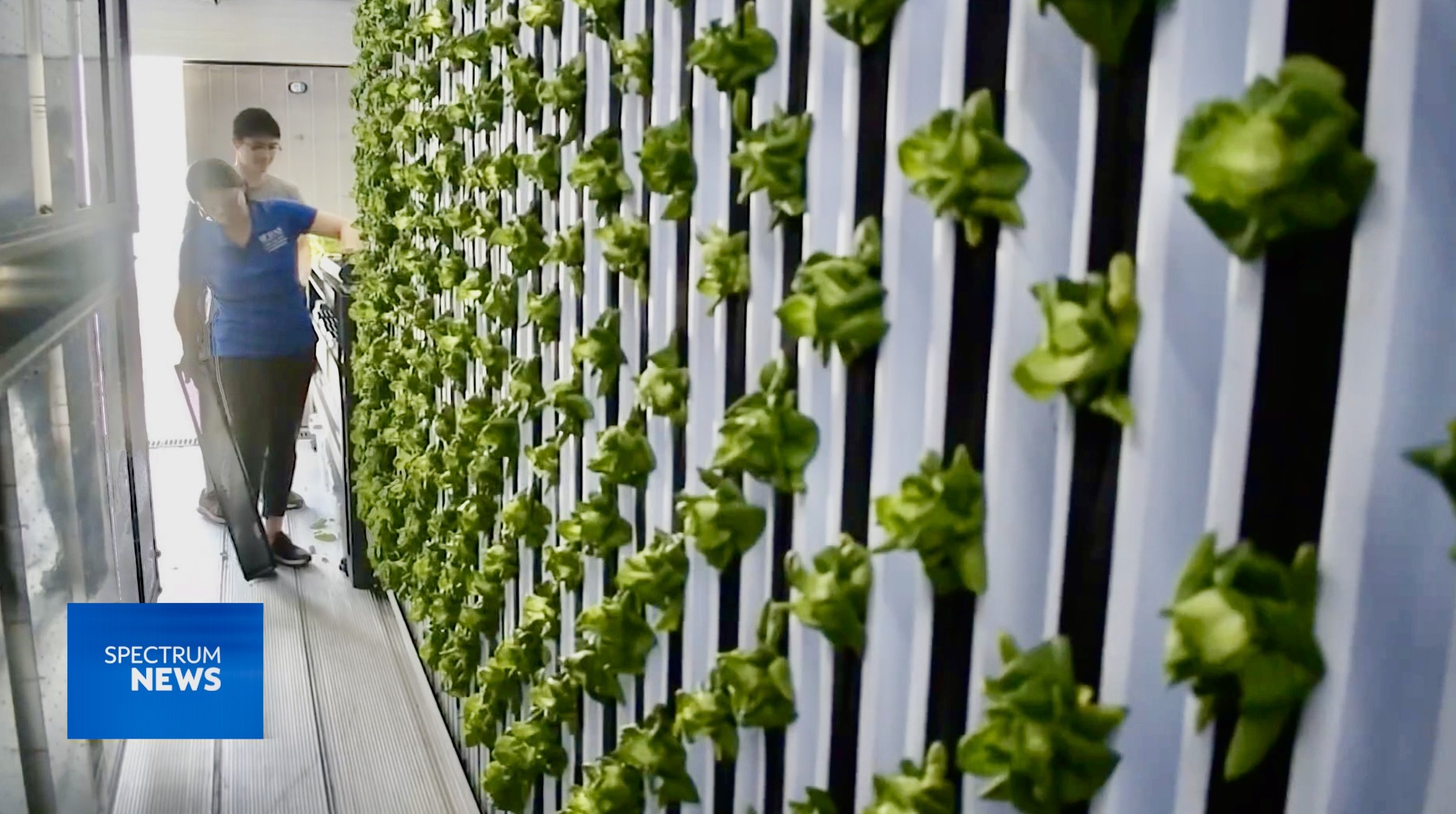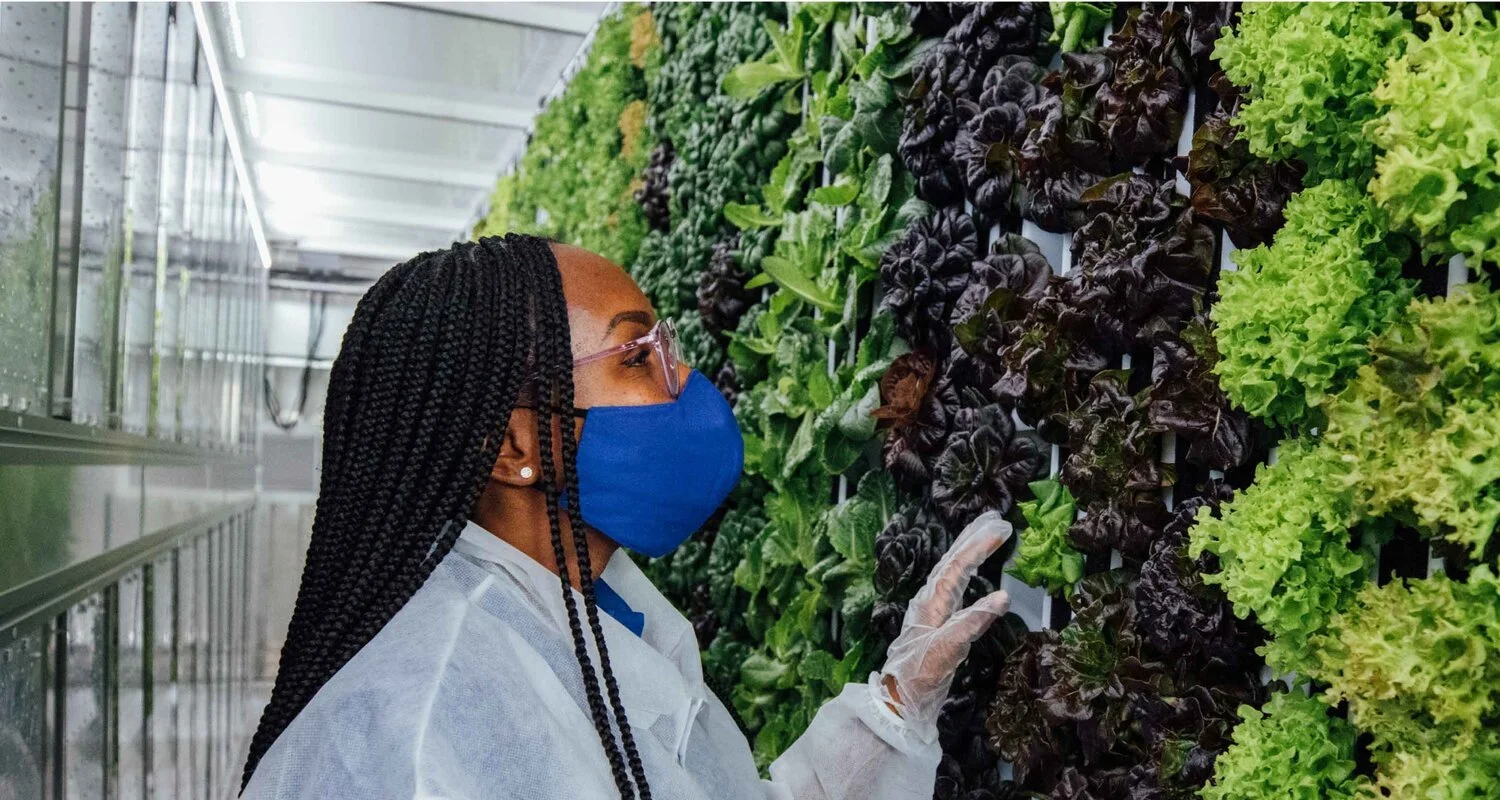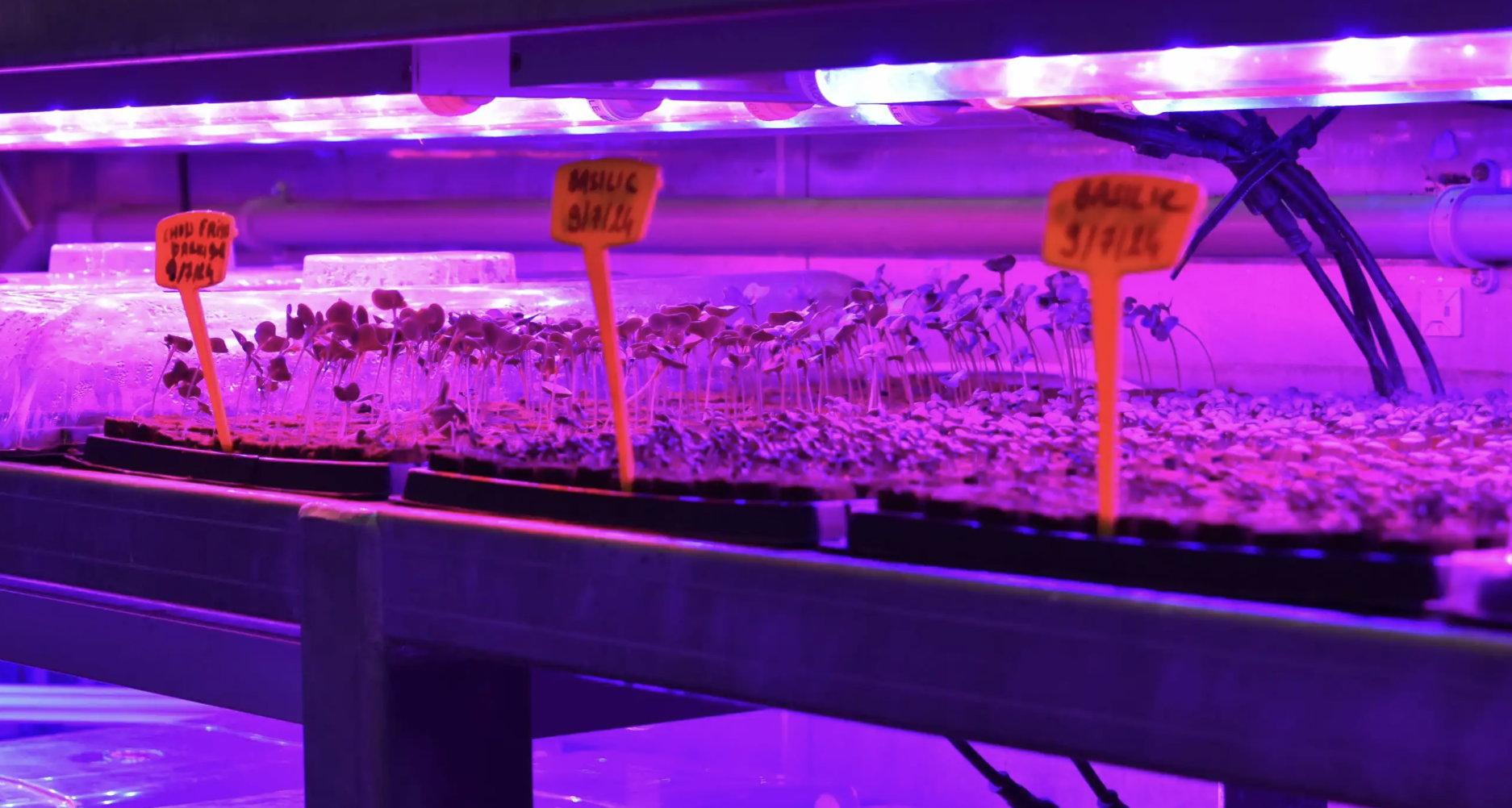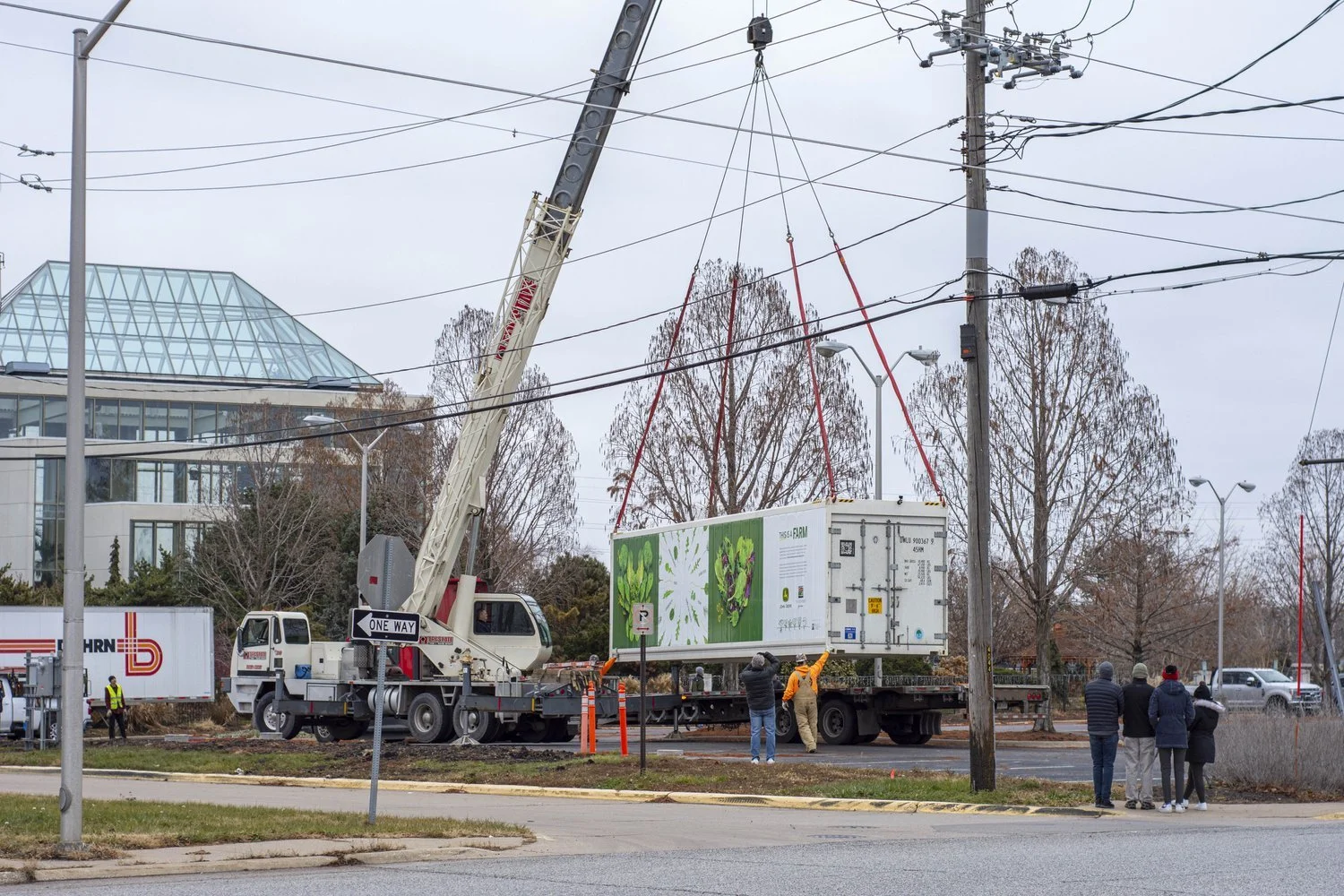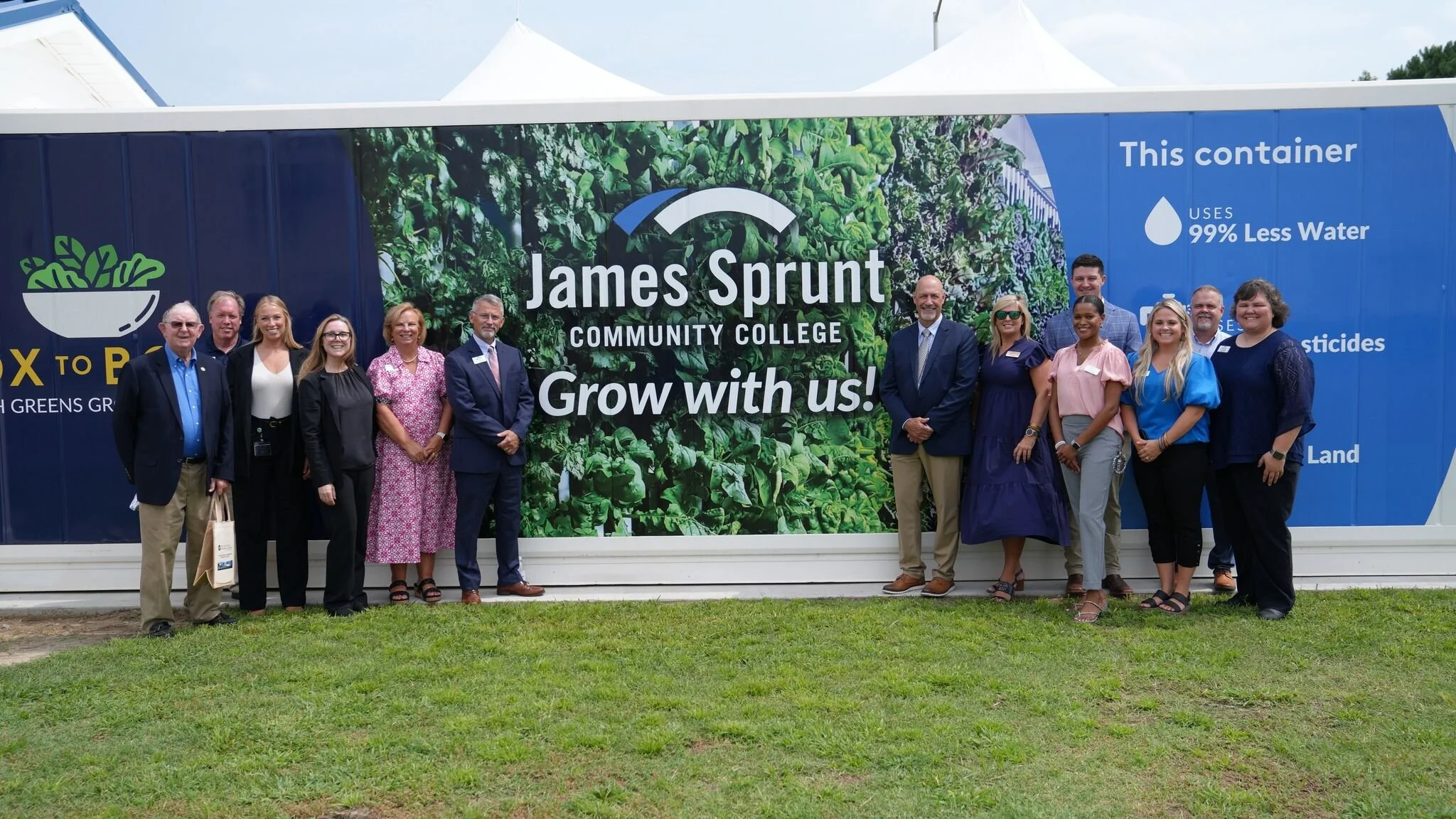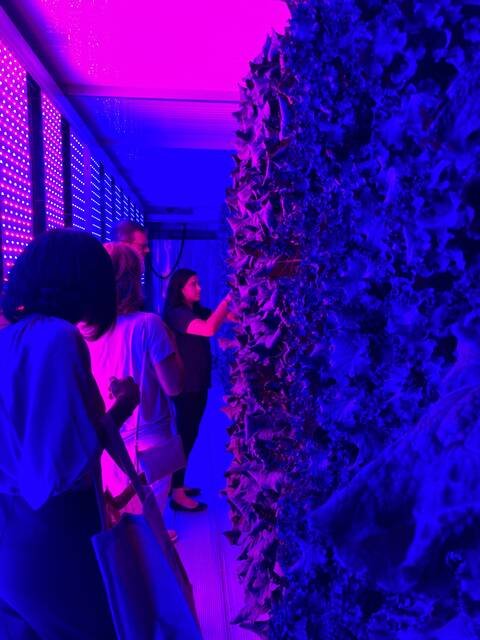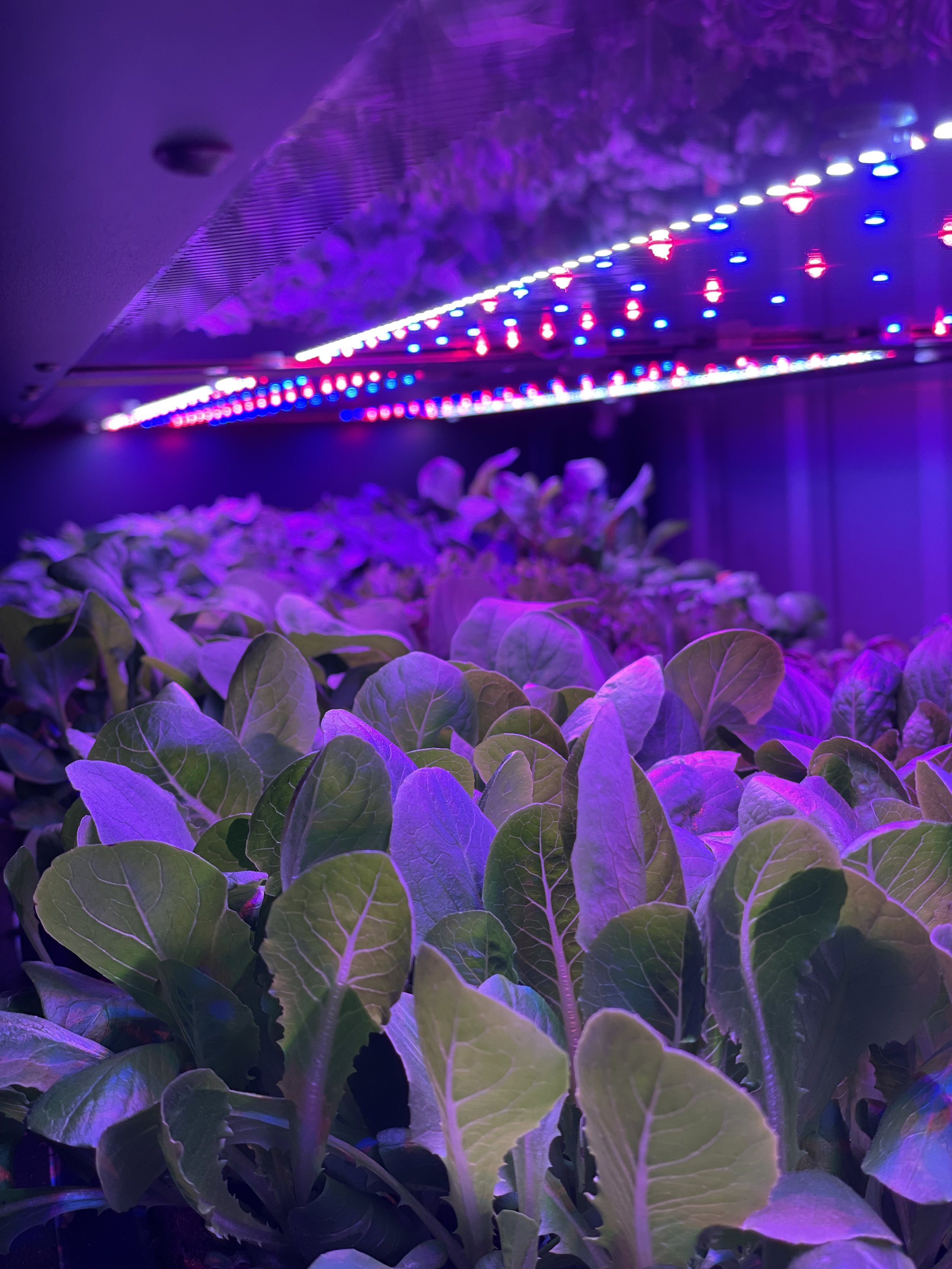
News About Farming in Shipping Containers & Limited Indoor Spaces
USA: Video - Revolutionizing Fresh Produce - University of Miami Discovers Container Farming
Step inside the world of sustainable agriculture and explore Hammock Greens' innovative, eco-friendly, hyperlocal farm nestled in the heart of Overtown—one of the University of Miami's providers of fresh greens for its dining halls.
USA: Kansas - Hydroponics At Uniontown Junior High: Learning and Growing Produce For The School
USD 235 was the recipient of a hydroponic shipping container farm through a grant awarded to the Kansas Division of Children and Families, USD 235 Superintendent Vance Eden said in a prior interview.
Hydrophonics is Coming to a Local School System
The Community Green Farms of Pittsburg, KS announced on September 11, 2023, that they would receive over $1,000,000 to bring seven southeast Kansas counties a vertical hydroponic container farm.
“The project is called a Leafy Greens Unit,” Weston said.
Shipping Container Farm In Citra Feeds University of Florida Campus Community
A research project centers around understanding energy consumption of indoor farming
Each week, a shipping container farm in Citra sends lettuce to the University of Florida in Gainesville
This produce helps stock the on-campus food pantry, which is open to the entire UF community, from students to teachers
Pantry coordinator Lori Benson says, “It’s healthy. Produce is probably what students want the most”
“You don’t have to be missing food or struggling to come here. This is an opportunity for everyone, and it shows stuff like this is important for a community,” she said.
PBS Series Spotlights Local Agriculture: Morgan Hill’s FarmTECH and Three Feathers Farm featured on ‘America’s Heartland’
Morgan Hill Unified School District's hydroponic lettuce grown in shipping containers.
A public radio station program focusing on agriculture in the United States, has turned its focus on two local enterprises in Morgan Hill.
The first nationally broadcast agriculture series of its kind, “America’s Heartland” is back for its 18th season with 10 new episodes featuring crops grown on locally owned farms.
US: WYOMING - Hydroponic Container ‘Freight Farm’ Headed To CWC As Part of Planned Controlled Environment Ag Program
CWC received $366,000 from WIP to “lay the groundwork” for the local CEA program, Page said – a process that included infrastructure development, course development, and the purchase of a hydroponic container farm that should be delivered in the coming weeks from a Boston-based company called Freight Farms.
Page called the freight farm “the biggest and most exciting part of this.”
How To Price Your Produce
Many new Freight Farmers don’t come from an agricultural background, so learning how to set crop prices is unfamiliar territory.
Establishing an optimal price point can be challenging. Pricing too high might deter customers, but pricing too low means missing out on potential revenue. How much do your customers value hyper-local produce?
In this guide, we'll help you identify the ideal sales channel, outline the process to establish your pricing, and offer recommendations for moving forward.
US: MISSOURI - "I Intended To Bring The Technology, And Find What My Market Needed"
"The farm came in a basic format, and we adjusted it to our way of farming that suited our needs best. Since it was able to grow over 900 different crop varieties, I intended to bring the technology, and find what my market needed, no matter how I had to do that," says David Payne, Co-founder of Beats Per Minute, a container farm operator in Kansas City, Missouri.
US: MASSACHUSETTS - La Colaborativa Deploys First Containerized Urban Farm In Chelsea
La Colaborativa, a preeminent Latinx-led nonprofit organization focused on empowering Latinx residents and enhancing quality of life, is excited to announce the launch of the youth-centered Freight Farm Urban Agriculture Program. Beginning this community-centered project,
La Colaborativa has deployed the first containerized urban farming unit in Chelsea and the greater region, which will be operated by youth enrolled in La Colaborativa’s workforce training programs.
VIDEO - US - MINNESOTA: BIPOC-Focused Farming Company Plants a Legacy Outside Plymouth
Inside, it’s a high-tech farming system. Route 1’s Reithen Curtis manages the system. Work starts with seedlings that eventually get planted vertically in rows within the freight. He runs LED lights that mimic the sunlight 18 hours a day, so plants grow super fast.
Carpenter said they grow 200 pounds of that fresh food every week. It goes into communities through the farmer’s market. It also goes to restaurants, so they can get fresh, local food even in the winter months.
FRANCE: Adding Container Farming To An Existing Farming Operation
SEPEC Consults provided technical and financial assistance to support the implementation of this project. This partnership helped Burban navigate the challenges associated with installing and operating the hydroponic system. “SEPEC has been a valuable partner. They assisted us in understanding and utilizing the hydroponic system effectively and provided financial support that was crucial for the project’s success,” he noted.
The selection of crops for this new system was made in consultation with SEPEC Consults, considering local market needs. The chosen crops, including parsley, chives, coriander, basil, shiso, kale, Pak Choi, lettuce, and other aromatic plants, aim to meet a growing demand for fresh, high-quality products.
US - WASHINGTON STATE - Suspicious Fire Devastates South Whidbey Nonprofit Farm
A suspicious fire at the BlackSeed Agroecology Farm & Village on South Whidbey destroyed an estimated $250,000 worth of hydroponic equipment Friday afternoon.
Island County Sheriff Rick Felici said investigators gathered evidence from the scene and sent it to the Washington State Crime Lab to help identify whether any accelerant may have been used to start the fire.
VIDEO: How Urban Farming Is Changing The Sustainability Game In Charlotte, North Carolina
Whether it’s a community garden or fully-dedicated land near a dense, city center, urban farming has surged in popularity in recent years. These farms impact local communities by providing education about climate change, food security, biodiversity, pollinators and nutrition.
Urban agriculture contributes between 15% and 20% of the global food supply, according to the USDA. This can help cities be more equitable because it creates easier access to fresh produce.
Julian Jacobs is the owner of Adrina Farms, which is located in Uptown Charlotte at the Innovation Barn. His farm is a hyperlocal, hydroponic farm where they grow lettuce, leafy green and root vegetables inside a 320-square-foot indoor space.
Tapestry Farms Celebrates New Hydroponics Container
In partnership with the Deere Foundation, Freight Farms, the city of Rock Island, and the Quad City Botanical Center, Tapestry Farms announces today a significant expansion of our food-growing capabilities for 2024 and beyond.
This morning, a 320-square-foot self-contained hydroponics unit, which can grow between two and six tons of produce annually, arrived from Freight Farms in Boston by semi truck and crane to the parking lot of the Botanical Center. This container will give our organization the opportunity to double, or possibly triple, the amount of produce we can grow each year, said Ann McGlynn, executive director of Tapestry Farms.
Canada • Nfld Labrador: For Fresh Produce On The Northern Peninsula, This Company Is Betting On Hydroponics
Salads in St. Anthony will be a little fresher and a little more local this fall, with the opening of a new hydroponics facility in the town, on Newfoundland's Northern Peninsula.
Christopher Mitchelmore, CEO of St. Anthony Basin Resources Incorporated, which opened the facility, said the company's goal is to make fresh leafy greens and herbs more accessible for the town's residents.
"We want to be able to give people year-round access at an affordable rate," Mitchelmore said.
The shipping container-sized facility will be able to produce up to 10,000 pounds of fresh produce — including lettuce, kale, spinach, basil and mint — every year, according to Mitchelmore.
4th Generation Farmer Helps Youth Flunking Out of School To Grow And Sell Food For Disadvantaged In Minnesota
The programs and facilities include the “Freight Farm” where hydroponic gardens grow a variety of food inside donated shipping containers equivalent to 4 acres of farmland. It includes the Emerging Farmers Institute, offering intensive virtual coursework on the fundamentals of farming, while also including sessions aimed at tackling the most commonly faced mental stressors of working in agriculture.
EP49: Powering The World’s Largest Network of Connected Farms - Freight Farms
Brad McNamara, Co-Founder and President of Freight Farms, joins us on this week’s episode to discuss:
- Scaling local food production around the world
- Decentralized vs centralized farming
- Drive-in farmer’s markets
- Notable customer stories
- The future of food production
- Two big ideas rotting in his idea graveyard
USA: North Carolina - Hydroponics – Growing Without Soil
James Sprunt Community College is raising the bar on “smart farming” by implementing a Smart Farm Hydroponics Growing Container equipped with cutting-edge technology marrying food production and education. More than just growing plants, we are growing the ways we improve our students, our communities, and our local economy.
Recently, the North Carolina Tobacco Trust Fund Commission (NCTTFC) provided Four County Electric Membership Corporation (FCEMC) and JSCC with funding to purchase a hydroponic smart farm container. The Smart Farm is located at the JSCC WestPark Center in Warsaw.
USA - North Carolina: Ribbon-Cutting Officially Ushers In Hydroponic Farming At JSCC
The Hydroponics Smart Farm — dubbed “Box to Bowl” — is the result of a partnership that includes JSCC, Four County Electric Membership Corporation, North Carolina’s Electric Cooperatives, Duplin County, and the North Carolina Tobacco Trust Fund Commission.
Box to Bowl consists of a 40-foot-long shipping container that provides growing area equal to two acres of land, in which plants are grown in a controlled environment absent soil and pesticides.




